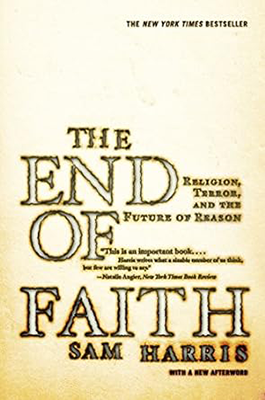The End of Faith
“The End of Faith: Religion, Terror, and the Future of Reason” is a book by Sam Harris, published in 2004. It is a critique of religion and an exploration of the relationship between faith, reason, and morality. Here’s a summary:
In “The End of Faith,” Sam Harris argues that religious faith is a major source of human conflict, violence, and suffering. He contends that belief in supernatural entities and dogmatic religious doctrines often leads to intolerance, bigotry, and violence, both on an individual and a societal level.
Harris begins by examining the irrationality of religious faith and the dangers posed by religious extremism. He discusses the role of religion in perpetuating ignorance, superstition, and tribalism, and the ways in which it can impede scientific progress and social progress.
One of the central themes of “The End of Faith” is the idea that religion is incompatible with reason and evidence-based thinking. Harris argues that religious beliefs are often based on faith rather than empirical evidence, and that they are therefore immune to rational inquiry and critique. He suggests that this epistemic closure can lead to a range of harmful consequences, including intolerance, violence, and the suppression of dissenting viewpoints.
Harris also explores the ethical implications of religious belief, discussing how religious doctrines can justify and even encourage acts of violence and oppression. He argues that morality should be based on rational principles and universal values, rather than on religious dogma.
Throughout the book, Harris emphasizes the importance of secularism and the separation of church and state in promoting peace, tolerance, and human flourishing. He advocates for a society in which reason and evidence guide public policy and moral decision-making, rather than religious beliefs.
Overall, “The End of Faith” offers a passionate and provocative critique of religion and its impact on human society. Harris challenges readers to confront the harmful consequences of religious faith and to embrace a more rational and humanistic worldview based on reason, science, and compassion.

